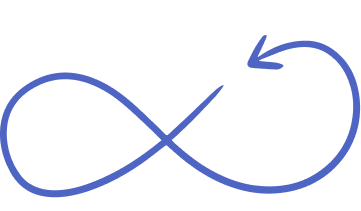What support is available
when your child lives at home?
How to find local resources
Adolescence is a complicated time for both parents and children.
If you are concerned about changes in your child's behavior, you might
consider involving a mental heath professional. Sometimes meeting
with a therapist for a short time is all that your child needs. Other
times, more interventions may be required.
Your first step will likely be exploring options near you.
We know this is easier said than done. Read below for pointers to finding help when your child lives at home.

Finding a Therapist
Here are ideas of how to start. There is no correct chronological order; rather, we explain different starting points to approach your search for a therapist.
Schedule a primary care appointment and/or call
your pediatrician
your pediatrician
Ask your physician for behavioral health referrals for individual therapists that specialize in working with children and families (this can include weekly individual therapy or family therapy and can be in-person or virtual).
You may be referred to a therapist only to find that the therapist is not taking new clients. In that case, ask them for a referral. Referrals are a great way to find other therapists in your area!
Call your insurance provider
Most insurance providers will have a number to call for mental health (likely on your insurance card) and they may refer you to a list of covered providers. This can be a frustrating process as many therapists may be full and no longer accepting new clients. If you call through the list and there are no openings, you can present this to your insurance and advocate for reimbursement for a therapist outside their network.
Unfortunately, many great therapists choose not to work with insurance companies and only accept out-of-pocket payment because the process of dealing with insurance companies is cumbersome. You may still be able to ask for a “super bill” which you can present to your insurance company for full or partial reimbursement.
Reach out to other parents
As we have learned at togetherly, other parents are often your best resource. Check our community and ask other parents and friends if they know a therapist they like for children.
Research online
This might be the hardest way to find a therapist, but Psychology Today keeps an active list of therapists throughout the United States and you can search by different criteria.
https://www.psychologytoday.com/us/therapists
https://www.psychologytoday.com/us/therapists
Choose a therapist who is a good fit for your child and family
Once you find a therapist, the next step is ensuring that your child connects with that therapist. This may seem secondary after you have finally found someone with an available slot, but it’s important not to ignore this step. Maybe the first therapist you find will be a good fit for your child and family, but they also may not. It is critical to establish a relationship with a therapist whom your child connects with and can feel comfortable opening up to.
This part of the process — finding an available therapist covered by insurance that your child likes — can be VERY frustrating.

Medication
and Psychiatry
Once you find the right therapist, they may recommend getting a psychiatrist involved in order to evaluate your child for medication. Medications prescribed by a psychiatrist can be an important component of helping your child feel better in tandem with working with a therapist. The psychiatrist referral would likely be through your primary care provider or therapist.
Another possibility is to have your pediatrician prescribe medications while working with your child’s therapist. While medications can make a big difference, it may take time. Be patient if you try different medications before you find which works best for your child with the fewest side effects.

School Counselors:
Mental health support or resource coordination
Schools often have a team designated for mental health support or resource coordination. Counselors often know local mental health resources and programs either in the school or community; schedule a time to talk to them or email inquiring about local support.
Counselors may be able to provide or refer to school-based counseling/therapy.
Schools also have academic counselors, social workers, peer resource counselors, and other potential resources whom you can reach out to for additional resources.
Schools also have academic counselors, social workers, peer resource counselors, and other potential resources whom you can reach out to for additional resources.
Wellness Centers
Some schools have Wellness Centers which are designated spaces for students to go during school hours to decompress, relax, utilize coping skills, and de-escalate.
These wellness centers typically have counselors who can provide check-ins to students.
IEP = individualized education plan
In public schools, a team of teachers, counselors, and a school psychologist may establish an IEP (individualized education plan) for your child. This plan is implemented if your child’s mental health condition interferes with accessing their education.
An IEP provides some modifications to their curriculum and classroom engagement, and can allow access to additional mental health resources through the school district and/or local agencies.
Alternative schooling options
If your child’s behavioral, mental health, and academic needs are not being met in your public or private school setting, there may be other schooling options available locally. Many school districts have alternative schools (including non-public schools, charter schools, independent learning, and other school categories).
These tend to have smaller classes, modified learning, additional counseling, and other services. These options would be explored with your child’s academic counselor for information and referrals.
School Counselors:
If your child continues to struggle and you or the professionals involved believe your child needs more intensive treatment, you may want to review step 3 (on our Journey page) or they may recommend an Intensive Outpatient Program (IOP) or even a Partial Hospitalization Program (PHP). See further details in our Levels of Care page as well as in our Crisis page.



